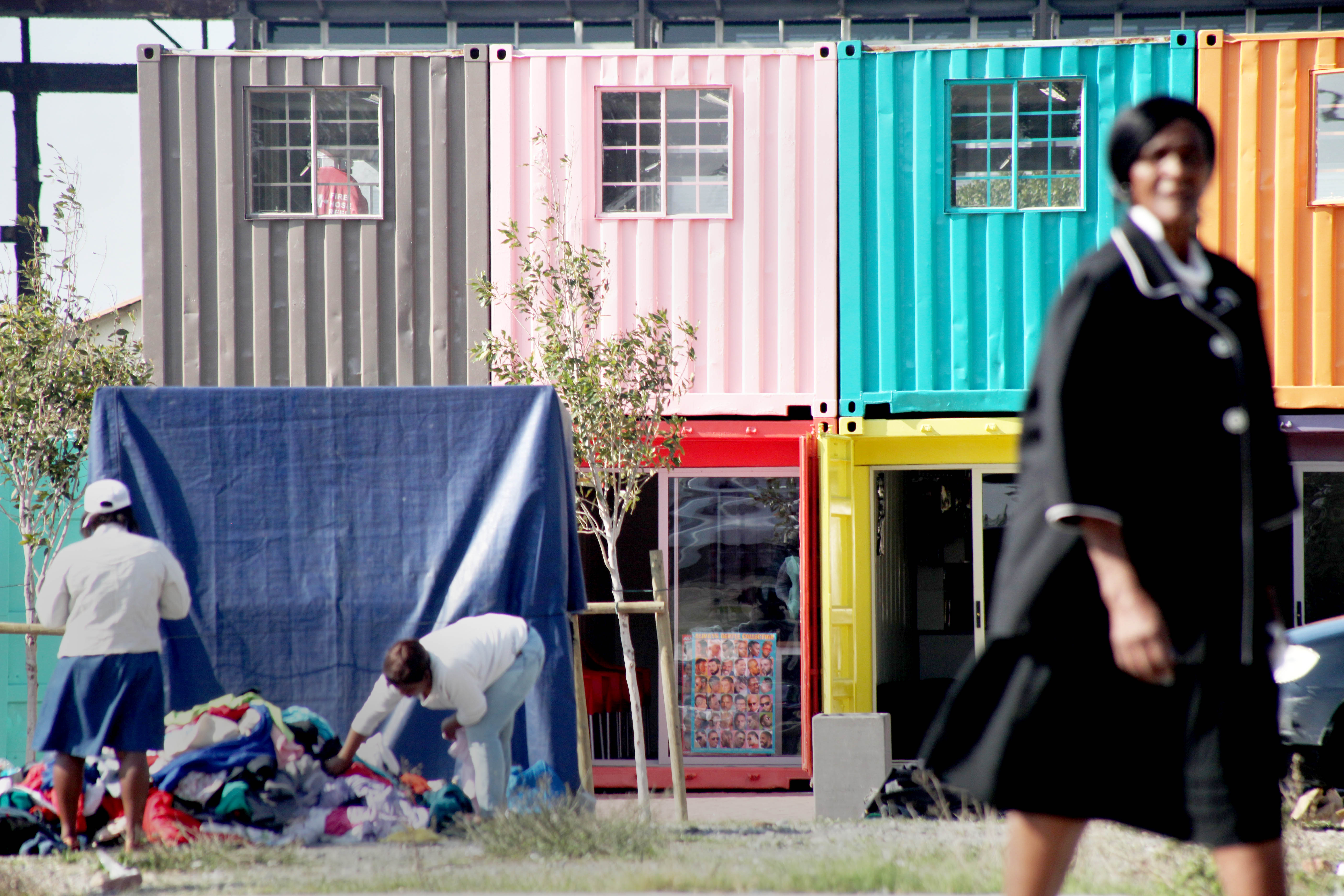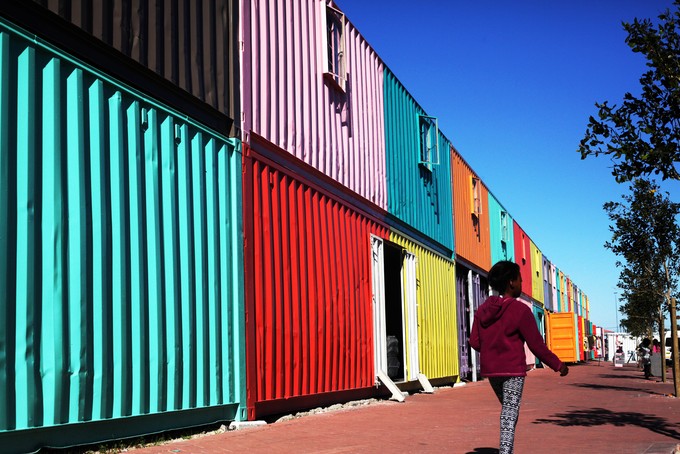
The Philippi Village Container Walk. Photo: Masixole Feni
16 May 2016
With the first phase of the Philippi Village Container Walk completed last year, another 73 containers are being added to the existing 54, says project manager Stean Bouwer.
The walk is part of the greater Philippi Village project which seeks to integrate working, socialising, recreation and shopping where people live.
The containers are on two storeys and attractively painted in a range of bright colours. The top floor has services; the bottom retail. Customers can have keys cut, buy clothes and fabric, even purchase building materials, take out insurance, and have a haircut or a meal at the fish-and-chip shop. There are also several community and community-focused organisations, among them Abalimi Bezekhaya, Community Connections, Sizisa Ukhanyo Training and the BETA Foundation.
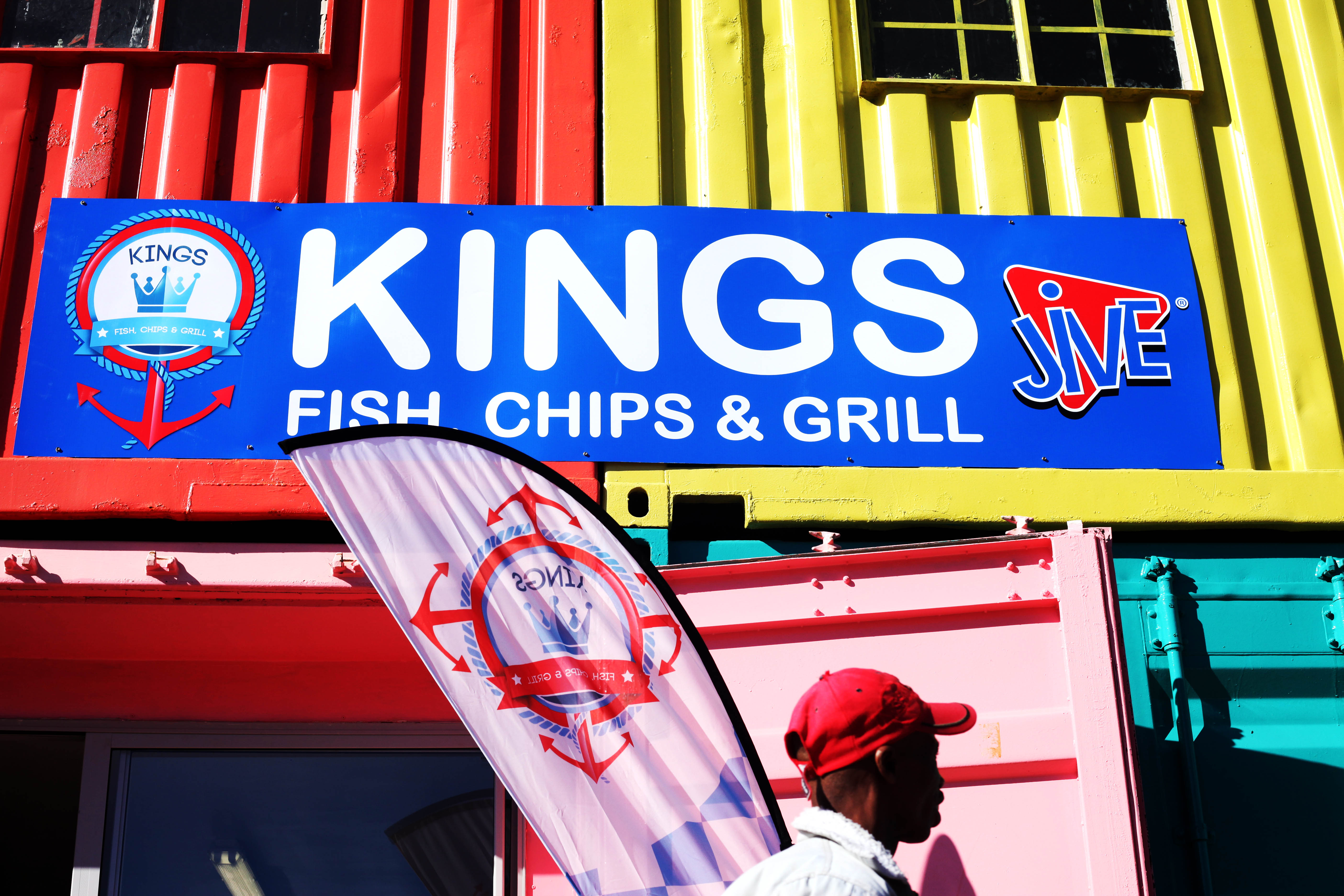
Bouwer says containers are quicker and cheaper to build with than “a normal concrete building, which would take about three times longer”. The first phase was completed in four months.
The Walk means people don’t have to trade on the streets and be exposed to things like theft, he says.
“We take 15 tenants at a time. They go through an incubation programme. It was part of the Industrial Development Corporation’s wish that entrepreneurs are trained for a period of three years, and after three years, they should be self-sufficient and are able to run their own businesses without any support.” The IDC backs the project.
“We try to source solely locally … The business place network which is on site here at the Philippi Village, selects the entrepreneurs,” he says.
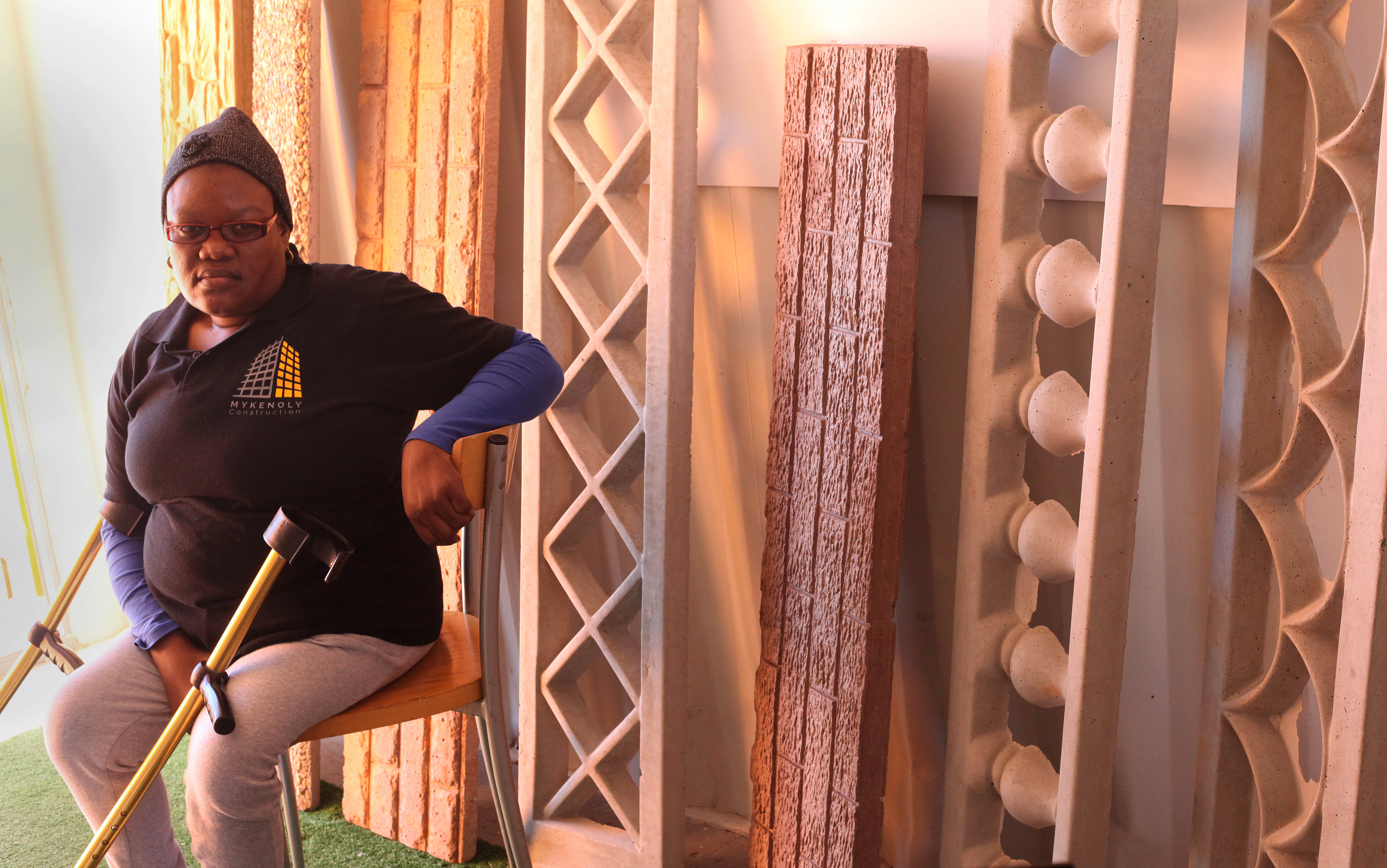
Nolusindiso Daniso is the owner of Mykenoly Construction. She sells building materials such as vibracrete and paving slabs.
“I heard about Container Walk through a friend who had seen an advert about office space here if you have a business,” she says. “I got my container this year in March and business is growing … I like to prove myself to people … I asked myself, how many women are in construction, and better yet, how many women with disabilities are in construction?”
Daniso had polio when she was five years old. She hadn’t been vaccinated as an infant.
“I was given a choice between using a wheelchair and crutches, but I chose crutches for fear that a wheelchair would make me lazy and it would be costly,” says Daniso.
“So I decided to prove to people that women with disabilities can also start their own construction company and run it to success. I registered my company in 2013 and I worked from home and did small jobs, like people’s yards.”
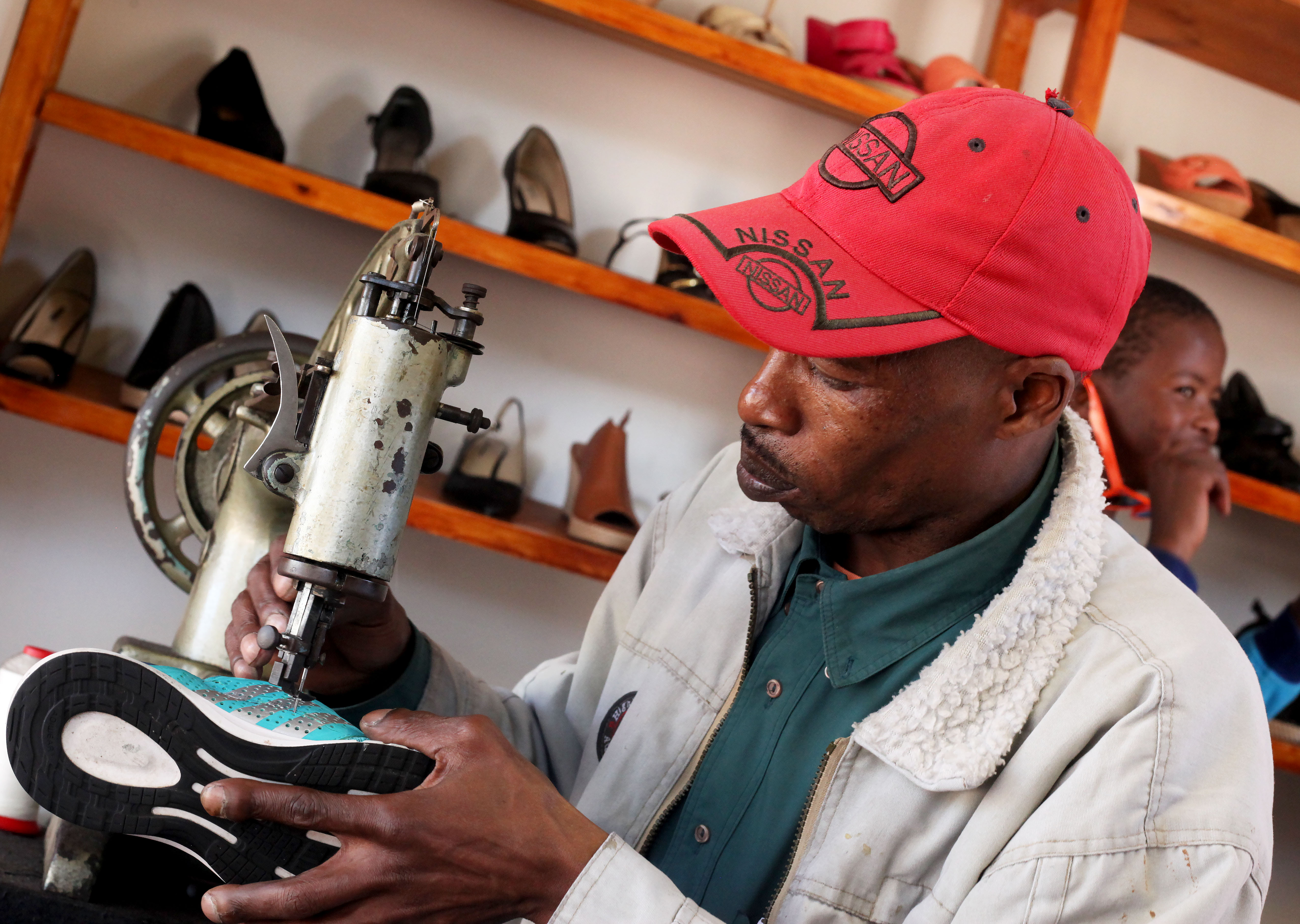
Simphiwe Mthiywa, owner of Simphiwe’s Shoes, opened his shop in 2011. He mends and sells shoes and bags and cuts keys.
“Business is not that great because we are trading in the township where people are poor and don’t have money to support our businesses. Sometimes you will find that I will sell one pair of shoes in a week. There are days where I will get lots of people who want their shoes fixed or their keys cut, but it’s tough.”
“I heard about the container walk from a friend who works here at Philippi Village. I think the container walk is a good project, but I feel that it should be advertised more … not a lot of people know about our business,” he said.
